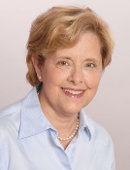Biography
Specialties
Allergy and Immunology, Pediatric Allergy and Immunology
Allergy and Immunology, Pediatric Allergy and Immunology
Research Topics
Allergy, Apoptosis/Cell Death, Autoimmunity, B Cells, Biodefense, Cellular Differentiation, Dendritic Cells, Immunology, Mucosal Immunology
Allergy, Apoptosis/Cell Death, Autoimmunity, B Cells, Biodefense, Cellular Differentiation, Dendritic Cells, Immunology, Mucosal Immunology
Multi-Disciplinary Training Area
Immunology [IMM]
Immunology [IMM]
